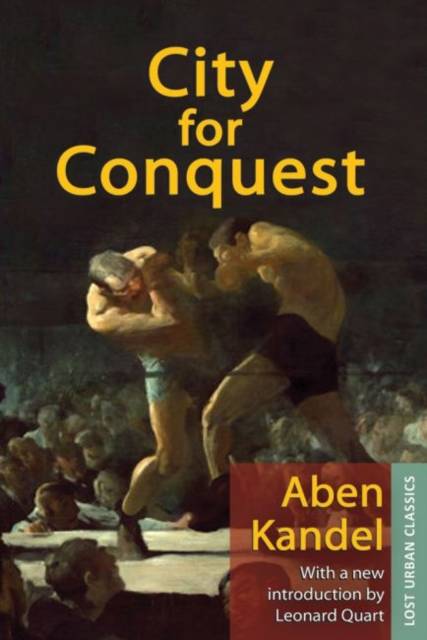
- Retrait gratuit dans votre magasin Club
- 7.000.000 titres dans notre catalogue
- Payer en toute sécurité
- Toujours un magasin près de chez vous
- Retrait gratuit dans votre magasin Club
- 7.000.000 titres dans notre catalogue
- Payer en toute sécurité
- Toujours un magasin près de chez vous
Description
F. Scott Fitzgerald's The Great Gatsby still captivates readers with its vision of 1920s New York as a city of infinite potential, where ambition and defeat live hand in hand. This sentiment is captured, with even greater acuity, in the pages of Aben Kandel's nearly forgotten masterpiece of urban life, City for Conquest (1936). The source of the classic 1940s James Cagney film of the same name, this panoramic New York novel captures the complex patterns of city life, vividly evoking a metropolis of dreams and nightmares.
Kandel portrays a volatile city inhabited by the aristocrat, the criminal, the idealist, the bohemian, the driven, the entrapped, and the impoverished, all equally striving "to make a dent in this town." The city itself is booming, its new constructions callously built on destruction, supplanting with equal disdain the slums of Brooklyn and the farm fields of the Bronx. This feverish microcosm of humanity inhabits a world of immense inequality where "six blocks from Wall Street, people haven't got a dime, six blocks from duplex apartments, people live in hovels" and "between the scarlet sore and the apple of the eye there lay a thick eyebrow of indifference."
A literary triumph in the tradition of Stephen Crane's Maggie: A Girl of the Streets and John Dos Passos' Manhattan Transfer, and out of print for far too long, City for Conquest is the inaugural work of fiction in Transaction's new Lost Urban Classics series.
Spécifications
Parties prenantes
- Editeur:
Contenu
- Nombre de pages :
- 377
- Langue:
- Anglais
- Collection :
Caractéristiques
- EAN:
- 9781412856065
- Date de parution :
- 15-08-15
- Format:
- Livre broché
- Format numérique:
- Trade paperback (VS)
- Dimensions :
- 150 mm x 226 mm
- Poids :
- 476 g






